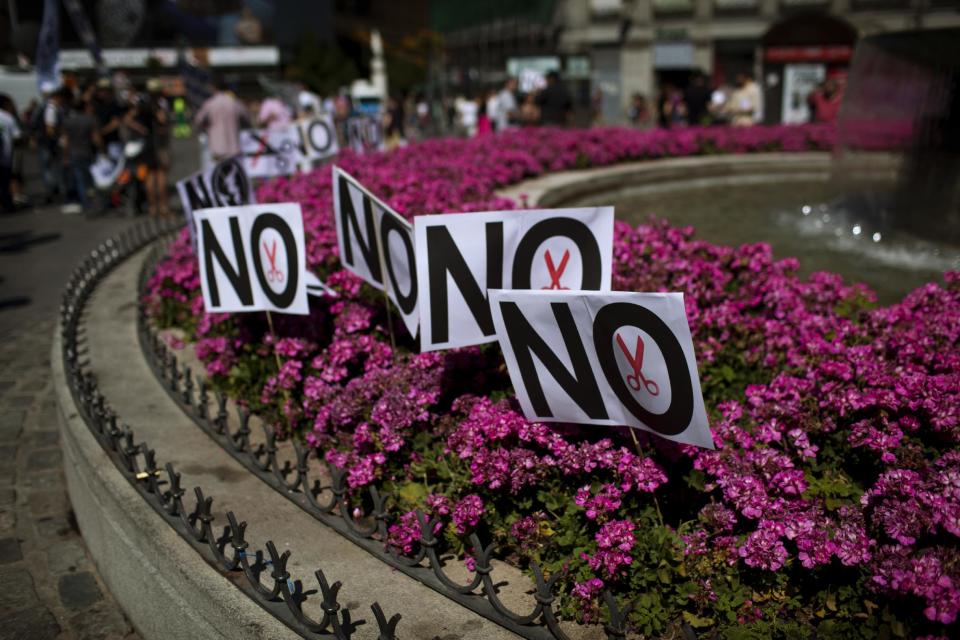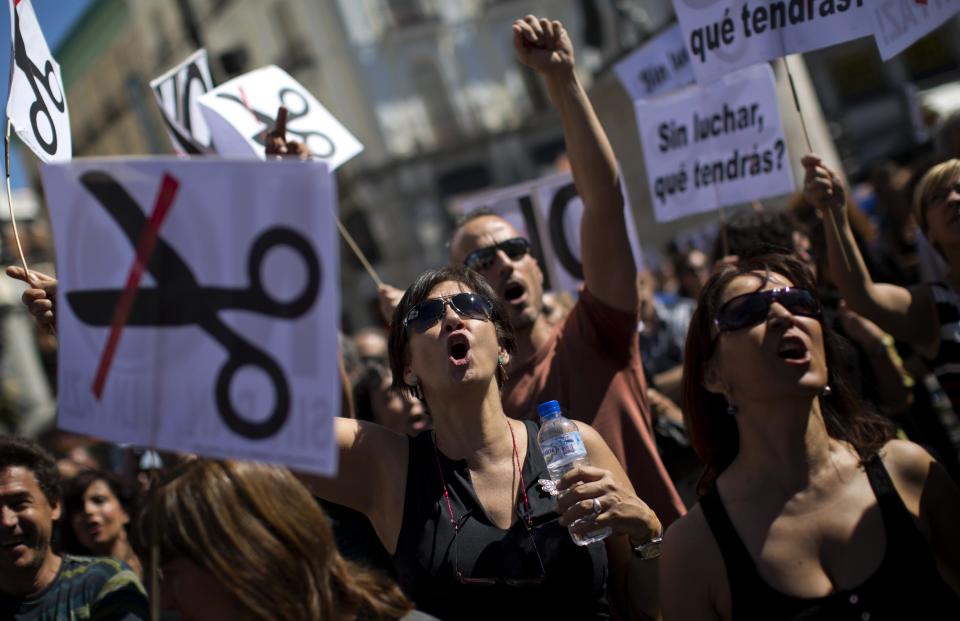Spanish civil servant protest wage cuts
MADRID (AP) — Spanish civil servants, some dressed in mourning, took to the streets Friday to protest the latest round of government austerity measures and their second wage cut in as many years.
Several hundred workers left the complex of government ministries in Madrid and blocked traffic briefly Friday. In the eastern city of Valencia, several hundred Justice Ministry workers shouted "hands up, this is a stick-up" at a protest rally.
The civil servants — who saw their wages cut 5 percent on average in 2010 in the first round of austerity cuts — are usually paid 14 times a year. The government is proposing to axe an extra payment normally made just before Christmas.
The cuts are part of a raft if austerity measures unveiled by Prime Minister Mariano Rajoy designed to shave €65 billion off the government's budget through 2015. Rajoy's Cabinet was scheduled to approve the wage cut and other austerity measures Friday.
The cuts, which also include a sales tax increase and overhaul of benefits, were unveiled after Spain won approval from the other 16 countries that use the euro for the first €30 billion tranche of a bailout for its troubled banking sector. Spain also managed to secure an extra year to meet a European deficit reduction target of 3 percent of GDP.
In the Puerta del Sol in downtown Madrid, about 500 civil servants gathered, about half of them dressed in black. Some women wore veils, as if they were at funerals. Protesters blew whistles and horns. Civil servants often ridiculed in Spain and seen as lazy, clock-in and clock-out types with the luxury of a job for life. But many earn as little as €1,000 a month.
Isabel Perez, a 40-year-old librarian, said "our wages have already been cut and now they take away the Christmas payment. I don't make it to the end of the month as it is. The extra payment gave some relief. We're not exactly millionaires." She earns €1,300 a month and had already faced a €330 euro a year wage cut by the Madrid regional government for which she works.
Pablo Gonzalez, 52, who also works for the Madrid regional government, said, "The cutbacks affect me badly because I pay my mortgage over 14 payments in line with my wages and cutting the extra one means I have to pay more each month."
"The government should go after the big companies that don't pay tax and bankers that have committed fraud and have run this country to the ground. Instead, we have to pay," he added.
Spain's banking industry is struggling to finance itself under the weight of toxic loans and assets from a real estate market collapse in 2008. Investors are becoming increasingly wary of placing money in Spanish banks, who are having to turn to the European Central Bank for financing. In June, Spanish bank borrowing from the ECB rose 17 percent from May. The accrued total as of the end of that month was €337 billion, 77 percent of all the money owed to the ECB and seven times the figure from June 2011.
A draft memorandum of understanding agreed by eurozone finance ministers for Spain's bank bailout suggests billions in problematic assets should be segregated into an "external asset management agency" so as to clean up Spanish banks balance sheets.
It also says that by the end of the year certain areas of jurisdiction — sanctioning and licensing — should be transferred from the Spanish economy ministry to the Bank of Spain.
This is seen as paving the way for the day when Europe has a single bank supervisory body that will oversee central banks and be empowered to recapitalize Spanish and other troubled banks directly, rather than pump the money into governments and increase their debt loads.


